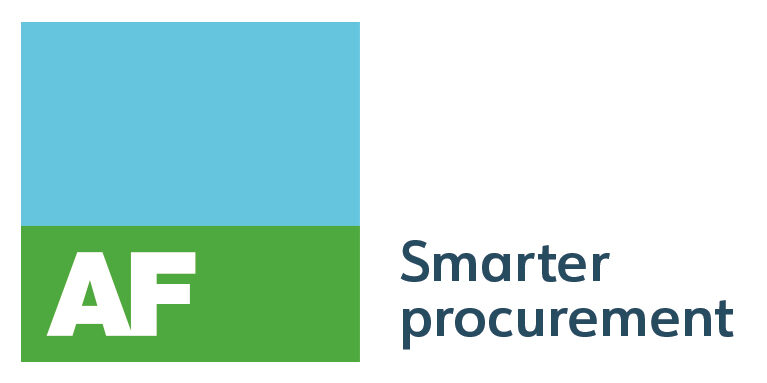Home > Your AF Spring Insights from Team AF
Your AF Spring Insights from Team AF
The Overview
From David Horton-Fawkes, Chief Executive Officer
The first three months of 2022 have been characterised by volatility and uncertainty. As a result, we know our Members have faced some tough, unprecedented challenges.
Despite the potential impact of the war in Ukraine on supply chains and prices, our Members and staff continue to look beyond their personal circumstances to support the people of Ukraine and I am humbled by their generosity in raising £26,085 to date. If you would like to make a pledge, please click here.
The Chancellor’s Spring Statement last week opened with strong words about the impact of war in Ukraine on the economy and the need to increase the UK’s economic strength and security.
Here at AF, we can draw on the strength of the expertise in our procurement teams to summarise the key changes from the budget and the implications for your business. We can also gather key current market insights for you that we hope will help with your decision-making and planning in Spring and beyond.
Response on the Spring ’22 budget
Red diesel duty cuts - from Helen Thurtle, AF Fuels Procurement Manager
The Chancellor announced a reduction in fuel duty, effective from 24th March 2022.
Fuel duty is automatically included in the price customers pay for diesel, petrol and other fuels used in vehicles or for heating. The rate of fuel duty depends on the type of fuel. VAT is then added on top, at a rate of 20%, or the reduced rate of 5% on domestic heating fuel.
What are the confirmed changes for our members?
The decrease of 5ppl applies to petrol and diesel and equates to an 8.63% reduction in the rate of duty. Red diesel is decreased by the same percentage (8.63%). The duty rates are set out below.
Fuel grade | Duty – Old Rate | Duty – New Rate |
Petrol, Diesel, Biodiesel & bioethanol | 57.95ppl | 52.95ppl |
Red Diesel | 11.14ppl | 10.18ppl |
Kerosene | NIL | NIL |
National Insurance and the new Health Levy - from Simon Hillier, AF Payroll Manager
From the 6th of April 2022 there will be a temporary rise in the National Insurance contribution rates payable on all earnings above the Primary Threshold to support NHS funding for employees and above the Secondary threshold for employers. The measures will apply to all countries in the UK.
An increase of 1.25% will be applied to Class 1, 1A, 1B and Class 4 for those who are self-employed.
From the 6th of April 2023, the National Insurance rates will revert to pre-2022 rates of 12 and 2% and a new Health and Social Care Levy will be introduced as an additional pay field to calculate the additional tax of 1.25%. These replacement measures go further:
- Those above state pensionable age who currently pay no NI will be required to pay the levy if they continue to work
- Current NI exemptions for employers will remain in place for employing: Under 21s
- Apprentices under age 25
- Veterans in the first 12 months of civil employment
- Freeports Worker (from April 2022)
- Payment of the levy will be reported through the usual channels for PAYE income tax/ NIC etc. through RTI.
The practical implications of these changes are that both employees and employers will potentially face substantially increased NI contributions. For example:
- For an individual earning £25,000 per annum: the employee will pay an additional £189.00 and the employer will pay an additional £198.75 more NI contributions per annum
- For an individual earning £53,000 per annum: the employee will pay an additional £501.56 and the employer will pay an additional £548.75 NI contributions per annum.
Business rates relief - from Kristian Dunham, AF Head of Livestock Inputs & General
Temporary business rates relief of 50% will come into effect from April for hospitality, retail, and leisure. We know that some of our Members have diversified their farming businesses so they may be able to benefit in part from this provision.
Renewables rates relief – from John Wadeson, AF Renewable Projects Specialist
Parliament was told “as energy costs rise, we know that energy efficiency will make a big difference to bills” and the budget document also notes that such measures will support “the UK’s long-term net-zero ambitions”.
The Chancellor said that prior to this budget, only some materials qualified for a 5% VAT relief and “there are complex rules about who is eligible”, a situation he blamed on a 2019 European Court of Justice decision. Therefore, over the next five years households will pay 0% VAT on solar panels, heat pumps and insulation, as well as wind and water turbines, which were previously out of scope under EU rules. The Treasury clarified that this 0% VAT applies both to the materials used and the cost of installation and noted that the Northern Ireland Executive would receive a share of this relief until it can be introduced UK-wide.
The government expects that, because of these changes, a typical family having rooftop solar panels installed will save more than £1,000 in total on installation, as well as in the region of £300 annually on their energy bills.
For businesses, the ongoing situation is less clear after next tax year. The Government is considering how to give tax relief for future business investment, after the current super-deduction term ends in April 2023, and will consult with businesses on this. Possibilities include partial first year allowances or increased writing-down allowances for general plant and machinery, or targeting higher relief at specific types of expenditure. An announcement will be made in the Budget in Autumn 2022 and we hope this will provide an extension to the current super-deduction relief for ‘energy saving measures’ like solar PV. In the meantime, the current super-deduction scheme appears to be the only real tax relief available to farm businesses installing renewable energy technologies.
Market insights
Fertiliser – from Chris Haydock, AF Fertiliser Procurement Manager
The price of nitrates in Europe has risen dramatically in response to substantial increases in natural gas prices, which climbed following Russia’s invasion of Ukraine. The fallout from Russia’s military action and Western responses to it have prompted concerns that producers’ production costs would force them to shut down facilities, and Yara has since announced a substantial curtailment of European output.
It is likely that our Members will need to continue to plan their requirements well in advance and be prepared to consider alternatives, where available, if first choice products are unavailable. We anticipate a drop in demand due to high prices. Some Members are already undertaking more detailed soil analysis to ensure fertiliser is only applied when necessary. At our February Wednesday Webinar on fertiliser, speaker Scott Garnett, an Agronomist for UK and Ireland with ICL Plant Nutrition spoke about the importance of considering nutrient use efficiency and uptake.
Feed - from Kristian Dunham, AF Head of Livestock Inputs & General
Cereal, soya & rape prices continue to rise leading to concerns over higher feed prices.
Certain sectors are weathering this better than others; for example, cereal and milk prices are increased. However, this doesn’t mean that they are unaffected and AF Members’ cash flow and budgets will no doubt come under increasing pressure because of these increases. There is a question over how beef and sheep farms who are affected by both rising fertiliser feed costs will cope. There will be pressure on their businesses to recoup these increased input costs.
But there is some good news. The UK government has announced that from 1st June it will remove the 25% import tariff on maize imported to the UK from the United States.
The actual effect on UK prices will be relatively small. Simply importing from the US instead of the East won’t change global demand as production is finite. However, if the situation in Ukraine was to ease and we start to see exports resume then prices could ease. Any easing in current markets will be welcomed on farm, and the news about maize tariffs will ease markets to some extent.
In an ideal world this would mean that 100% of what the UK imports from Russia/Ukraine will now be imported from the US. However, that is unlikely. Demand for US maize is already increasing across the EU and many EU countries are in a better position than the UK to import swiftly thanks to the UK Government’s reluctance to scrap the tariffs earlier. The EU are 3 months ahead of the UK.
News of the tariff reduction will be welcomed by all livestock sectors, but particularly the dairy industry when combined with the increased milk prices that we are now starting to see.
Outside dairy, the news could have positive affects across feed cereals as a whole. If so, it would be welcome relief for pig farmers too. For any livestock farmer continuity of supply is key so being part of a buying group or feed book has never been more relevant. We consistently achieve better prices and security of supply for those in our AF feed groups.



